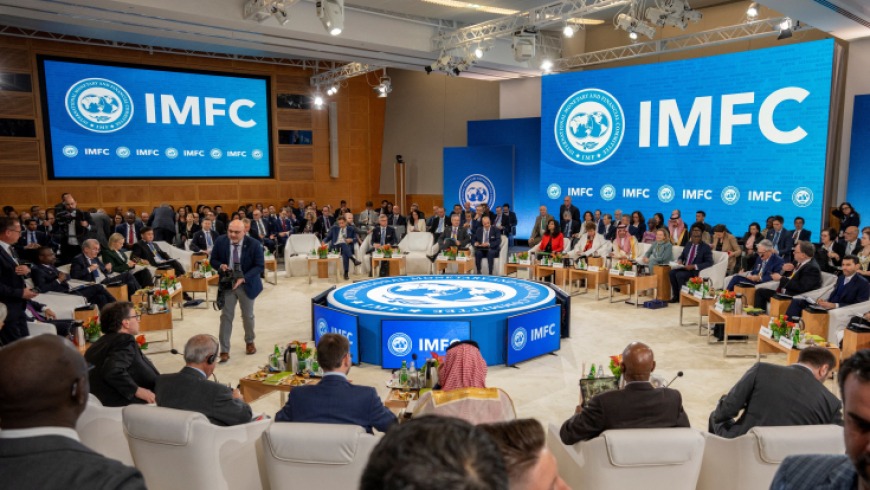Syrian Finance Minister Mohammed Yusr Barnieh has departed for Washington to take part in the Spring Meetings of the International Monetary Fund (IMF) and the World Bank. This marks the first such participation by a Syrian official in over two decades and signals the country’s tentative re-engagement with international economic platforms.
Accompanying the minister is the Governor of the Central Bank of Syria, Dr. Abdul Qader al-Hosariya, as part of an official delegation representing Syria at the global gatherings, which draw wide participation from finance and economic policymakers around the world.
Speaking before his departure, Minister Barnieh stated:
“We are heading to Washington with a packed agenda of meetings and bilateral talks. We hope these engagements will help reconnect Syria with the international financial system and global community, and support our efforts to rebuild Syria.”
Through this participation, Damascus aims to reassert its presence within international financial institutions and explore opportunities for economic cooperation with potential partners, as part of its broader effort to revive the national economy and advance reconstruction efforts.
Governor al-Hosariya described Syria’s participation in the IMF and World Bank Spring Meetings as a significant turning point in the country’s economic recovery journey. He emphasized that this step is not merely a diplomatic achievement but the beginning of a much-needed economic transformation.
“Syria is working to transition from humanitarian fragility to a growing economy, and ultimately to an emerging market,” al-Hosariya said. He stressed that true recovery will require sound financial governance, the attraction of responsible investment, and strengthened international cooperation. Syrian institutions, he added, are currently undergoing comprehensive reforms to align with global financial standards, fostering greater transparency and sustainable development.
He called on development institutions, international financial entities, and the private sector to actively participate in Syria’s reconstruction process, noting that targeted support would help build a strong economy capable of offering meaningful opportunities to all Syrians.
In recent months, the new Syrian leadership has enacted a series of economic reforms, most notably allowing the use of foreign currencies—including the US dollar—in commercial transactions. This represents a major policy shift, as the previous regime had criminalized non-pound transactions, with penalties reaching up to seven years in prison.
The Ministry of Finance has also held an expanded meeting with a delegation of World Bank technical experts to explore cooperation in modernizing Syria’s financial and banking sectors. During the meeting, Minister Barnieh presented the ministry’s current reform initiatives and emphasized the importance of keeping pace with global financial and banking transformations to improve institutional performance and serve the public interest.
In a related development, officials from the Syrian Ministry of Finance also met with a delegation from Norwegian civil society organizations in Damascus to discuss avenues of financial and developmental cooperation.
The meeting was attended by:
- Mohammed al-Atassi, Director of Planning, Studies, and International Cooperation at the Ministry of Finance
- Mohammed al-Bakour, Director of Financial Performance
Discussions focused on the types of targeted support needed to advance the reconstruction efforts led by Syria’s new administration.
Separately, Minister Barnieh also received a delegation from the European Union to discuss the challenges facing Syrians under the ongoing sanctions regime. According to a statement from the Ministry, both sides explored ways to enhance coordination and cooperation with regional and international partners to support the Syrian economy and contribute to national stability and long-term development.


